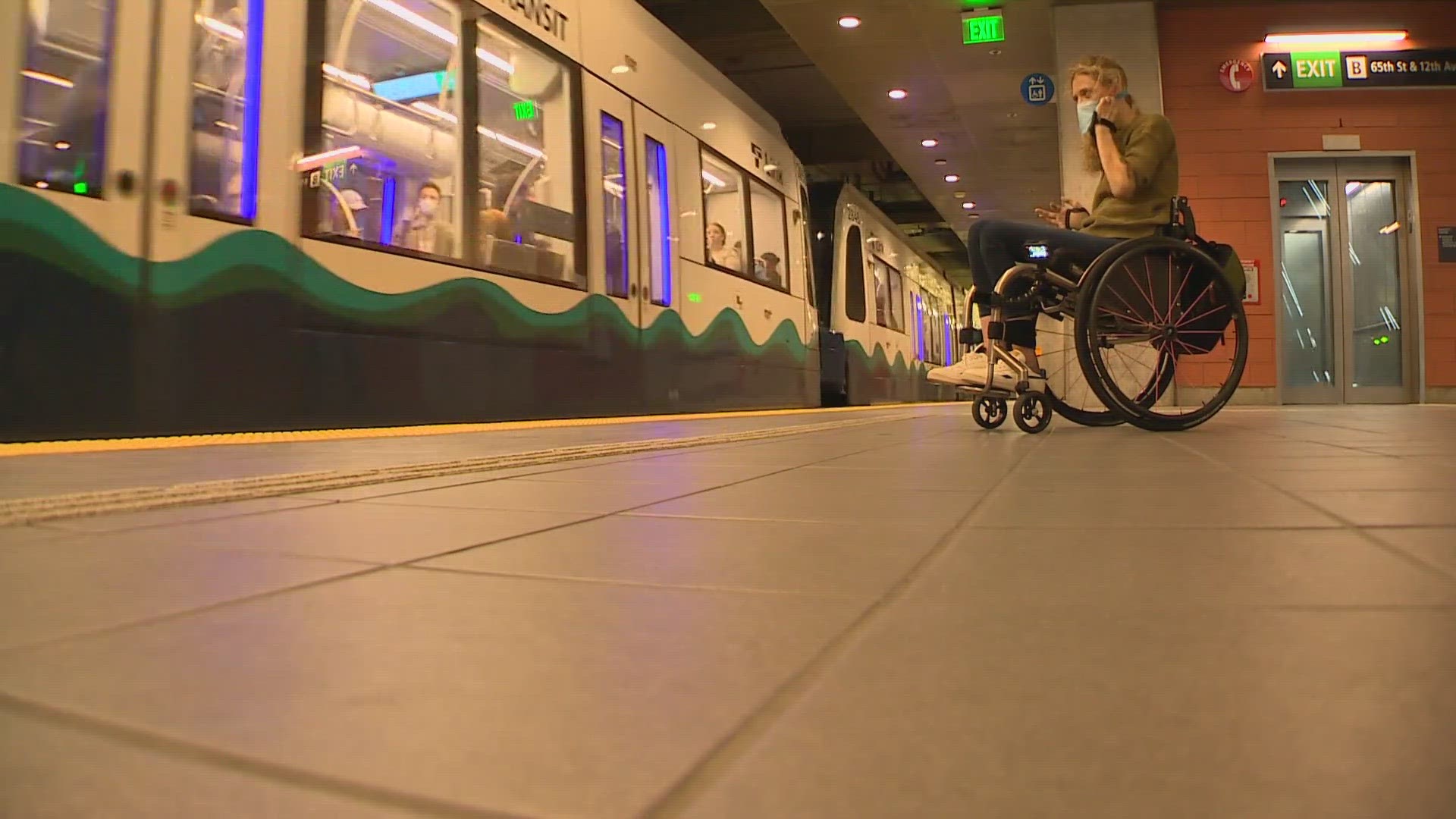WASHINGTON, USA — As someone who uses a wheelchair, Cecilia Black knows first-hand what streets, sidewalks, and public transit lack.
She chose her apartment in Seattle's Roosevelt neighborhood based on the accessibility to public transit; it's two blocks away from Light Rail. However, getting there is a problem once Black goes beyond the newly poured sidewalks.
"I usually use the bike lane because as you can see, [the sidewalk] is pretty uprooted," Black said.
The cracked, jagged sidewalk forces Black to roll into the bike lane putting her dangerously close to traffic and in the path of faster-moving bicyclists.
"In order to see all these issues or see how it works, you really have to experience it," she said.
That's the goal of the "Week Without Driving" challenge. Created by Disability Rights Washington where Black works, the campaign started in 2021. It's designed to help elected leaders and policymakers understand the barriers people with disabilities face when trying to use public transit.
RELATED: #WeekWithoutDriving goes national
"I want them to experience a commute without a car and really understand how much investments we need," Black said.
According to the CDC, one out of four adults in Washington has a disability, but it's not always as obvious as someone having mobility issues.
Amara Schermerhorn, a disability rights advocate has a vision condition called congenital nystagmus.
Schermerhorn's condition does not allow her to drive. Public transit is how she gets around making her intimately aware of its shortcomings.
"There's just inconsistent lighting on streets and at bus shelters," she said. "A lot of the time, it's the connection between transit options that holds me back a lot. It's so unpredictable."
Schermerhorn and Black met through their advocacy work. They hope this year's Week Without Driving leads to lasting changes for their communities. The change will need to come from elected leaders and policymakers.
"These investments aren't disability specific. They're really for everybody," Black said.
King County Councilmember Claudia Balducci, who also sits on the Sound Transit Board, is participating in the Week Without Driving challenge.
Councilmember Balducci released this statement when the King County Council proclaimed Oct. 2-8 as a Week Without Driving.
“There’s no substitute for experience and a Week Without Driving is a perfect way to understand how our transportation system works—and often doesn’t work—for non-drivers. It takes extra time, planning, and energy even for basic trips when driving yourself isn’t an option and our current transportation system, which is built for and around cars, does not make it easier. I encourage everyone to participate in this eye-opening challenge to get a better understanding of how critical it is to invest in reliable, frequent transit and safe bike/pedestrian infrastructure.”
In its 2023-2024 Biennial Budget, King County allocated $3.6 million for Metro to serve and improve rider experience, clean transit centers, enhance community safety and expand neighborhood engagement.

